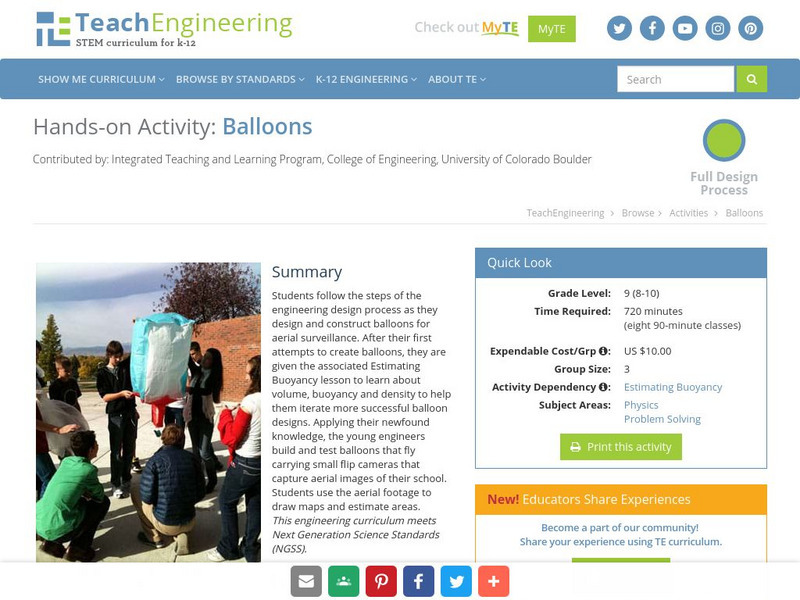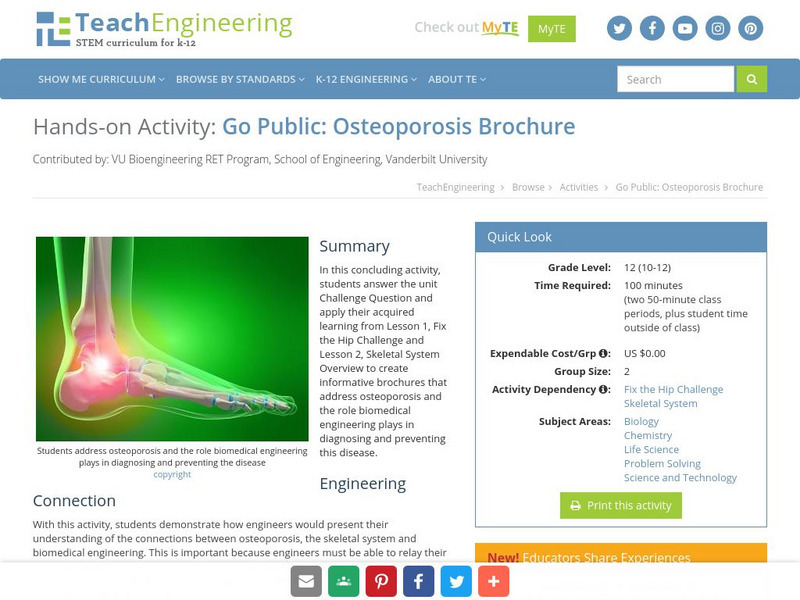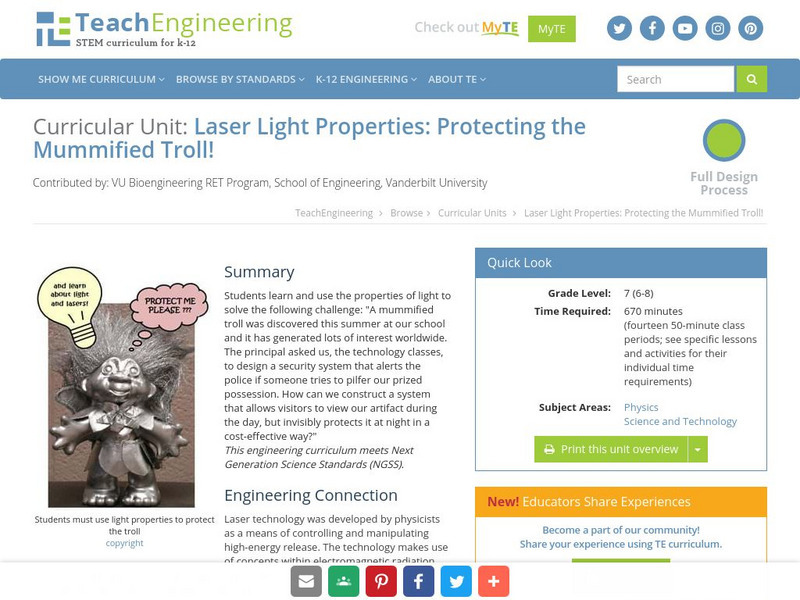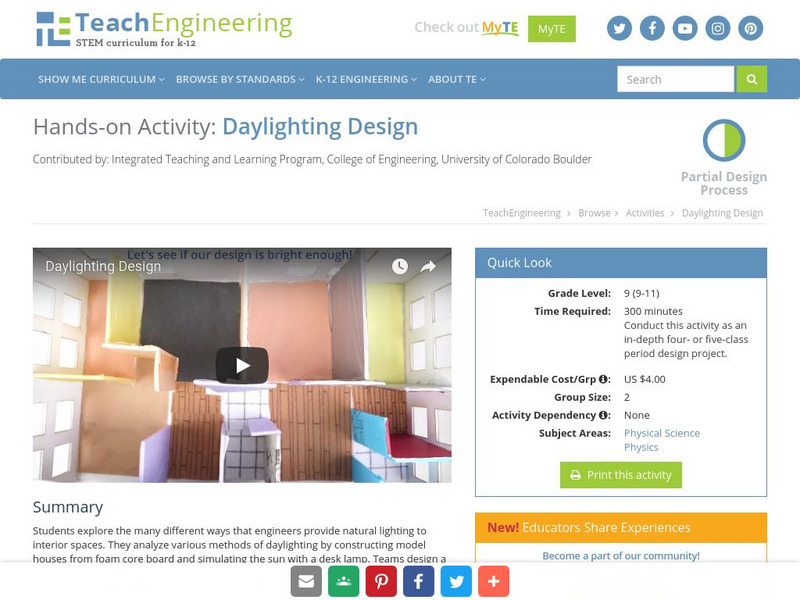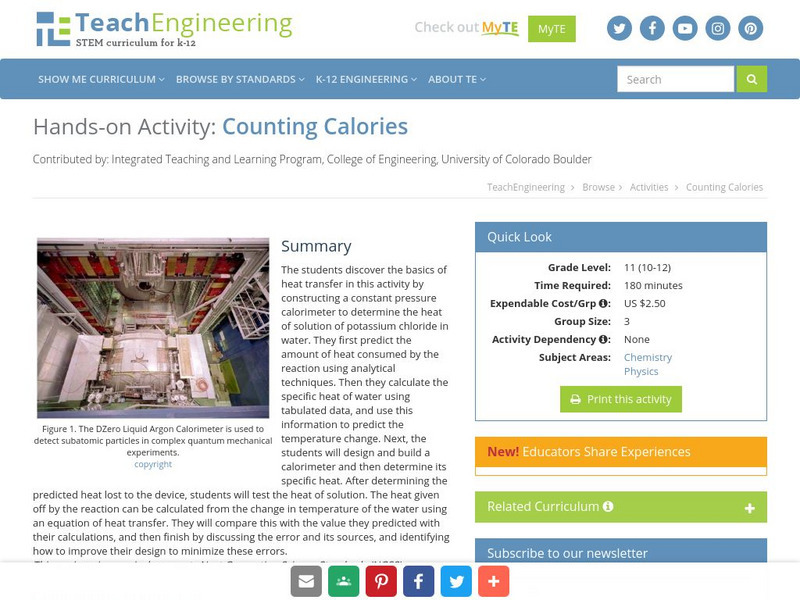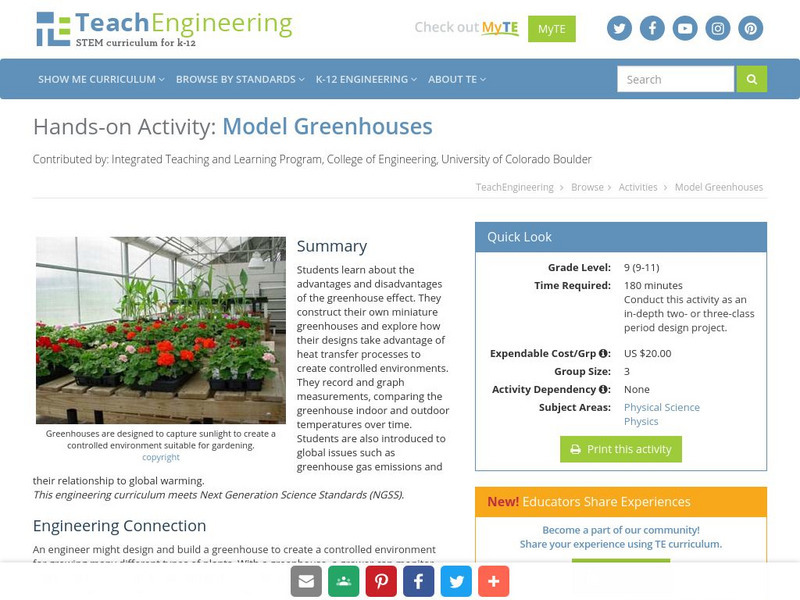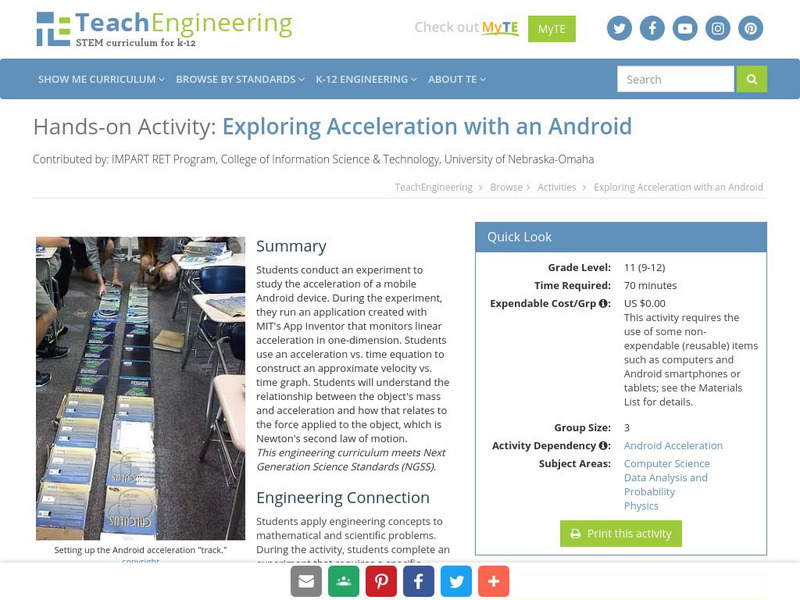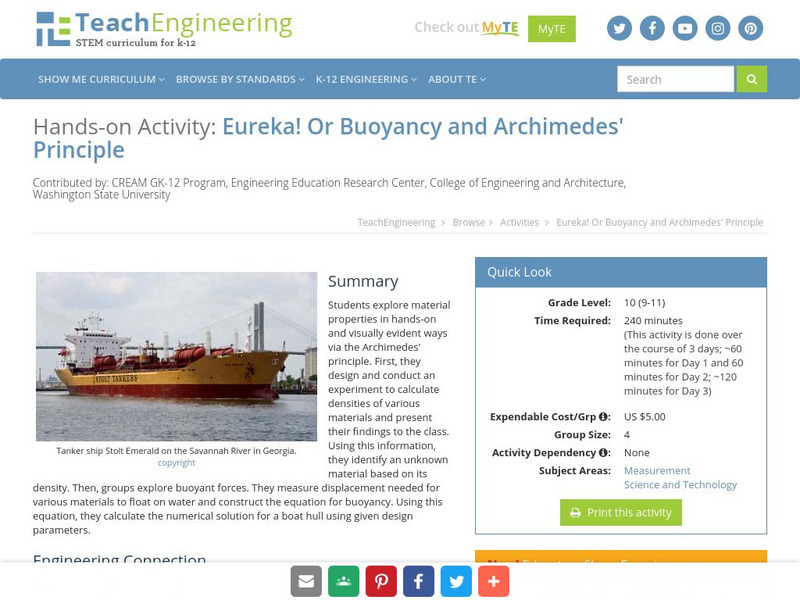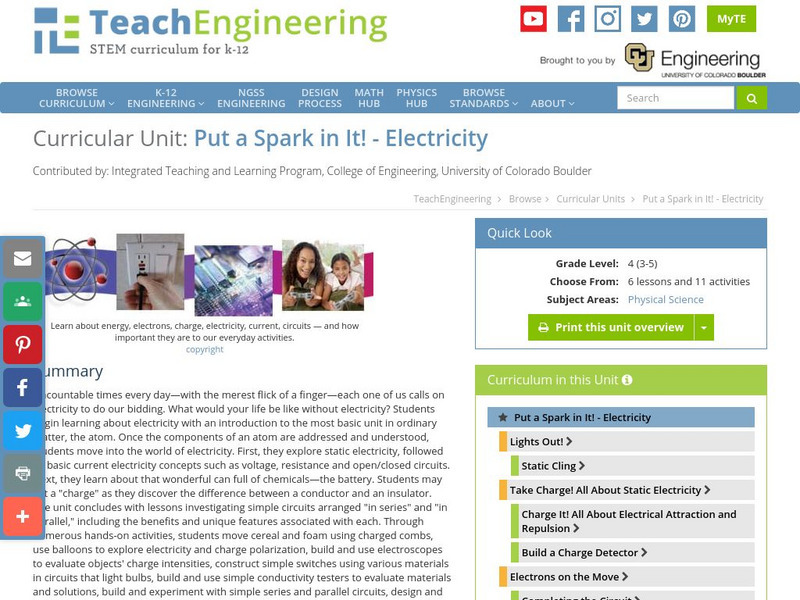PBS
Pbs Learning Media: Construct an Aqueduct
Think like an engineer and build an aqueduct in this interactive activity from the NOVA: "Secrets of Lost Empires: Roman Bath" Web site.
TeachEngineering
Teach Engineering: Super Slinger Engineering Challenge
Students are challenged to design, build and test small-scale launchers while they learn and follow the steps of the engineering design process. For the challenge, the "slingers" must be able to aim and launch Ping-Pong balls 20 feet...
TeachEngineering
Teach Engineering: Balloons
Students follow the steps of the engineering design process as they design and construct balloons for aerial surveillance. After their first attempts to create balloons, they are given the associated Estimating Buoyancy lesson to learn...
TeachEngineering
Teach Engineering: Seismic Waves: How Earthquakes Move the Earth
Students learn about the types of seismic waves produced by earthquakes and how they move the Earth. The dangers of earthquakes are presented as well as the necessity for engineers to design structures for earthquake-prone areas that are...
Central Pacific Railroad Photographic History Museum
Cprr Photographic History Museum: Constructing the Central Pacific Railroad
From a book written by a civil engineer, John Debo Galloway, this article discusses the construction of the Central Pacific Railroad including construction methods, problems, and the eventual meeting of the rails at Promontory Point.
TeachEngineering
Teach Engineering: Friction Force
Students use LEGO MINDSTORMS robotics to help conceptualize and understand the force of friction. Specifically, they observe how different surfaces in contact result in different frictional forces. A LEGO robot is constructed to pull a...
TeachEngineering
Teach Engineering: Testing With J Unit
JUnit is a testing method that is included with NetBeans (Java) installs or can be downloaded from the web and included in the Java build. In this activity, students design tests for a provided Java class before the class methods are...
TeachEngineering
Teach Engineering: Grading Congestion
Students construct a model roadway with congestion and apply their knowledge of level of service (LOS) to assign a grade to the road conditions. The roadway is simply a track outlined with cones or ropes with a few students walking...
TeachEngineering
Teach Engineering: Go Public: Osteoporosis Brochure
Students will answer the Challenge Question and use the acquired learning from Lesson 1, "Fix the Hip Challenge" and Lesson 2, "Skeletal System Overview"to construct an informative brochure addressing osteoporosis and the role biomedical...
TeachEngineering
Teach Engineering: Mechanics Mania
Through ten lessons and numerous activities, students explore the natural universal rules engineers and physicists use to understand how things move and stay still. Together, these rules are called "mechanics." The study of mechanics is...
TeachEngineering
Teach Engineering: Laser Light Properties: Protecting the Mummified Troll!
Students learn and use the properties of light to solve the following challenge: "A mummified troll was discovered this summer at our school and it has generated lots of interest worldwide. The principal asked us, the technology classes,...
TeachEngineering
Teach Engineering: Daylighting Design
Students explore the many different ways that engineers provide natural lighting to interior spaces. They analyze various methods of daylighting by constructing model houses from foam core board and simulating the sun with a desk lamp....
TeachEngineering
Teach Engineering: Building an Electromagnet
Students design and construct an electromagnet that must pick up 10 staples. They begin with only minimal guidance, and after the basic concept is understood, are informed of the properties that affect the strength of that magnet. They...
NC State University
The Engineering Place: Roller Coasters [Pdf]
A lesson where learners construct a roller coaster and test it under different conditions to learn about force and motion.
TeachEngineering
Teach Engineering: Polluted Air = Polluted Lungs
To gain a better understanding of the roles and functions of components of the human respiratory system and our need for clean air, students construct model lungs that include a diaphragm and chest cavity. They see how air moving in and...
TeachEngineering
Teach Engineering: Saving a Life: Heart Valve Replacement
Students use their knowledge about how healthy heart valves function to design, construct and implant prototype replacement mitral valves for hypothetical patients' hearts. Building on what they learned in the associated lesson about...
TeachEngineering
Teach Engineering: Counting Calories
The students discover the basics of heat transfer in this activity by constructing a constant pressure calorimeter to determine the heat of solution of potassium chloride in water. They first predict the amount of heat consumed by the...
TeachEngineering
Teach Engineering: Model Greenhouses
Students learn about the advantages and disadvantages of the greenhouse effect. They construct their own miniature greenhouses and explore how their designs take advantage of heat transfer processes to create controlled environments....
TeachEngineering
Teach Engineering: Rooftop Gardens
Students explore whether rooftop gardens are a viable option for combating the urban heat island effect. Can rooftop gardens reduce the temperature inside and outside houses? Teams each design and construct two model buildings using foam...
TeachEngineering
Teach Engineering: Robotic Perimeter
Students learn and practice how to find the perimeter of a polygonal shape. Using a ruler, they measure model rooms made of construction paper walls. They learn about other tools, such as a robot, that can help them take measurements....
TeachEngineering
Teach Engineering: Exploring Acceleration With an Android
Students conduct an experiment to study the acceleration of a mobile Android device. During the experiment, they run an application created with MIT's App Inventor that monitors linear acceleration in one-dimension. Students use an...
TeachEngineering
Teach Engineering: Eureka! Or Buoyancy and Archimedes' Principle
Students explore material properties in hands-on and visually evident ways via the Archimedes' principle. First, they design and conduct an experiment to calculate densities of various materials and present their findings to the class....
TeachEngineering
Teach Engineering: Put a Spark in It! Electricity
Uncountable times every day "with the merest flick of a finger"each one of us calls on electricity to do our bidding. What would your life be like without electricity? Students begin learning about electricity with an introduction to the...
TeachEngineering
Teach Engineering: Homes for Different Climates
Students learn about some of the different climate zones in China and consider what would be appropriate design, construction and materials for houses in those areas. This prepares them to conduct the associated activity(ies) in which...


